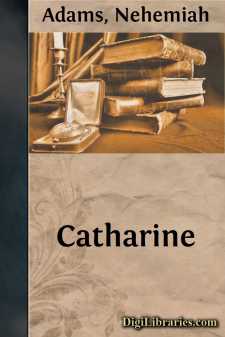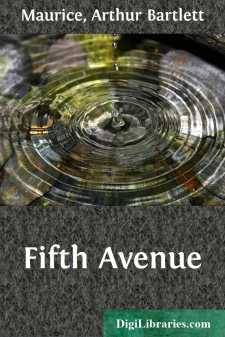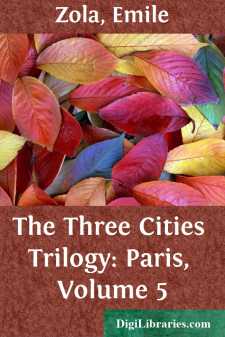Categories
- Antiques & Collectibles 13
- Architecture 36
- Art 48
- Bibles 22
- Biography & Autobiography 813
- Body, Mind & Spirit 142
- Business & Economics 28
- Children's Books 17
- Children's Fiction 14
- Computers 4
- Cooking 94
- Crafts & Hobbies 4
- Drama 346
- Education 46
- Family & Relationships 57
- Fiction 11829
- Games 19
- Gardening 17
- Health & Fitness 34
- History 1377
- House & Home 1
- Humor 147
- Juvenile Fiction 1873
- Juvenile Nonfiction 202
- Language Arts & Disciplines 88
- Law 16
- Literary Collections 686
- Literary Criticism 179
- Mathematics 13
- Medical 41
- Music 40
- Nature 179
- Non-Classifiable 1768
- Performing Arts 7
- Periodicals 1453
- Philosophy 64
- Photography 2
- Poetry 896
- Political Science 203
- Psychology 42
- Reference 154
- Religion 513
- Science 126
- Self-Help 84
- Social Science 81
- Sports & Recreation 34
- Study Aids 3
- Technology & Engineering 59
- Transportation 23
- Travel 463
- True Crime 29
Sort by:
I THE CAT-HOOD OF MAURICE To have your hair cut is not painful, nor does it hurt to have your whiskers trimmed. But round wooden shoes, shaped like bowls, are not comfortable wear, however much it may amuse the onlooker to see you try to walk in them. If you have a nice fur coat like a company promoter’s, it is most annoying to be made to swim in it. And if you had a tail, surely it would be solely...
more...
by:
Edwin Bjorkman
I The oldest part of Stockholm is a little rocky island. Once it was the whole city. Popularly it is still spoken of as "The City." At one end of it stands the huge square-cut pile of the Royal Palace, looking with solemn indifference toward the more modern quarters across the ever hurried waters of the North River. Nearer the centre, and at the very top of the island, lies an open place called...
more...
by:
Nehemiah Adams
MORE THAN CONQUEROR. Is that a death-bed where the Christian lies? Yes,—but not his: 'Tis death itself there dies. Coleridge. She was not an infant—an unconscious subject of grace. But the Saviour has led through a long sickness, and through death, a daughter of nineteen years, and has made her, and those who loved and watched her, say, We are more than conquerors. To speak of Him, and not to...
more...
CHAPTER I The Shadow of the Knickerbockers Boughton, had you bid me chantHymns to Peter Stuyvesant.Had you bid me sing of Wouter.(He! the Onion-head! the Doubter!)But to rhyme of this one-mocker,Who shall rhyme to Knickerbocker?—Austin Dobson. Before the writer, as he begins the pleasant task, is an old half-illegible map, or rather, fragment of a map. Near-by are three or four dull prints. They are...
more...
by:
Anonymous
Joshua 1:1 Now it happened after the death of Moses the servant of Yahweh, that Yahweh spoke to Joshua the son of Nun, Moses' servant, saying, 1:2 Moses my servant is dead; now therefore arise, go over this Jordan, you, and all this people, to the land which I give to them, even to the children of Israel. 1:3 I have given you every place that the sole of your foot will tread on, as I told Moses....
more...
On a recent journey to the Pennsylvania oil regions, I stopped one evening with a fellow-traveler at a village which had just been thrown into a turmoil of excitement by the exploits of a horse-thief. As we sat around the tavern hearth, after supper, we heard the particulars of the rogue's capture and escape fully discussed; then followed many another tale of theft and robbery, told amid curling...
more...
by:
Jackson Gregory
CHAPTER I Jim Kendric had arrived and the border town knew it well. All who knew the man foresaw that he would come with a rush, tarry briefly for a bit of wild joy and leave with a rush for the Lord knew where and the Lord knew why. For such was ever the way of Jim Kendric. A letter at the postoffice had been the means of advising the entire community of the coming of Kendric. The letter was from...
more...
The ordered intermingling of the real and the dream,— The mill above the river, and the mist above the stream; The life of ceaseless labor, brave with song and cheery call— The radiant skies of evening, with its rainbow o'er us all. An Old Sweetheart of Mine!—Is thisher presence here with me,Or but a vain creation ofa lover's memory?A fair, illusive visionthat would vanish into airDared...
more...
by:
Emile Zola
THE GUILLOTINE FOR some reason of his own Guillaume was bent upon witnessing the execution of Salvat. Pierre tried to dissuade him from doing so; and finding his efforts vain, became somewhat anxious. He accordingly resolved to spend the night at Montmartre, accompany his brother and watch over him. In former times, when engaged with Abbe Rose in charitable work in the Charonne district, he had learnt...
more...
DEAR FROST: I am expected to supply a preface for this new edition of my first book—to advance from behind the curtain, as it were, and make a fresh bow to the public that has dealt with Uncle Remus in so gentle and generous a fashion. For this event the lights are to be rekindled, and I am expected to respond in some formal way to an encore that marks the fifteenth anniversary of the book. There...
more...











